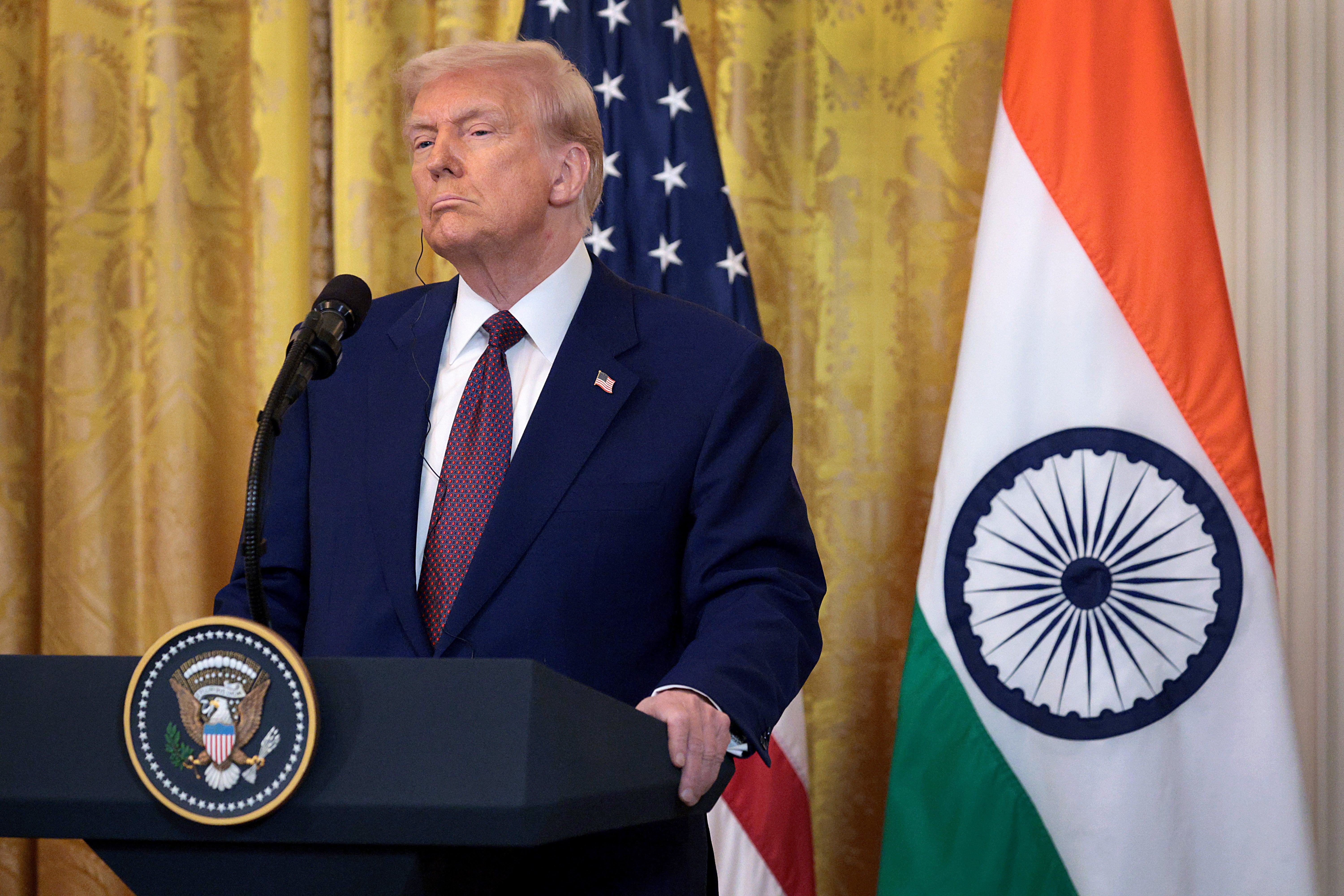Sir Keir Starmer will seek to act as a bridge between Europe and the United States as he urges Donald Trump not to freeze Ukraine out of peace talks with Vladimir Putin over the war.
The prime minister will try to convince Mr Trump to uphold security guarantees for Kyiv and ensure Volodymyr Zelensky has a role in discussions to end the war.
Sir Keir is travelling on Monday to a European crisis summit called by French president Emmanuel Macron to face down the threat of Russia, after Mr Zelensky called for an “army of Europe” as it could not rely on the US for defence.
And he will travel to Washington next week where he will relay the outcome of the meeting to Mr Trump and seek to keep the US president onside.
Sir Keir said on Sunday: “The UK will work to ensure we keep the US and Europe together. We cannot allow any divisions in the alliance to distract from the external enemies we face.”
He has worked to avoid confrontation with Mr Trump since the president’s return to the White House, dodging a spat with the US over tariffs and free speech, and believes he can get a better hearing than EU leaders in Washington.
But he will also warn European counterparts they must take Mr Trump’s demands for higher defence spending seriously and make concrete commitments by a Nato summit in June, The Times reported.
The PM added: “This is a once-in-a-generation moment for our national security where we engage with the reality of the world today and the threat we face from Russia.
“It’s clear Europe must take on a greater role in Nato as we work with the United States to secure Ukraine’s future and face down the threat we face from Russia.”
Representatives of the US administration and Russian counterparts are expected to meet in Saudi Arabia for talks following Mr Trump’s direct phone conversation with Mr Putin on Wednesday.
But Ukrainian officials are not expected to be at the table at this stage, while other European leaders might not be involved in the process at all.
It comes after the PM said he is willing to put British troops “in harm’s way” on the ground in Ukraine to uphold any peace deal.
Writing in The Daily Telegraph, the prime minister said the UK was “ready to play a leading role” in Ukraine’s defence and security, including the commitment of £3 billion a year until 2030.

But he said that along with military aid to Ukraine “it also means being ready and willing to contribute to security guarantees to Ukraine by putting our own troops on the ground if necessary”.
“I do not say that lightly. I feel very deeply the responsibility that comes with potentially putting British servicemen and women in harm’s way,” Sir Keir said.
“But any role in helping to guarantee Ukraine’s security is helping to guarantee the security of our continent, and the security of this country.
“The end of this war, when it comes, cannot merely become a temporary pause before Putin attacks again.”
Wes Streeting said it would be “premature” to discuss how many troops would be sent to Ukraine as part of any peacekeeping force.
The health secretary told Times Radio: "The prime minister will be travelling to France to meet with other European Nato leaders to discuss what is a once-in-a-generation moment for the collective security of our continent, which isn't just about the future of Ukraine, it is an existential question for Europe as a whole.
"That's why the gathering today is important. Next week, he'll be travelling to Washington to meet with President Trump, no doubt relaying the outcome of some of those discussions today."
Asked what the scale of a potential peacekeeping force could be and if the government would be prepared to carry out a recruitment drive, he said: "I think it's premature to be talking about numbers."
The meeting in Paris called by Mr Macron will see Sir Keir joined by leaders from Germany, Italy, Poland, Spain, the Netherlands and Denmark along with the presidents of the European Council and European Commission and the secretary general of Nato.







